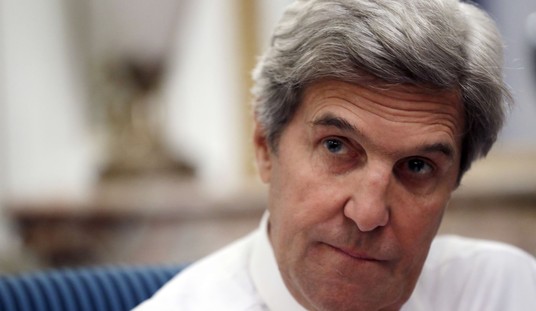On April 22, the worst terror attack in Indian-administered Kashmir in over a decade unfolded in broad daylight. Twenty-six Hindu tourists were singled out and executed by terrorists.
The Resistance Front (TRF)—a Lashkar-e-Taiba (LeT) proxy backed by Pakistan—has taken credit for the horrific attack. TRF, which is backed by Pakistan's intelligence agency (ISI), was co-founded by Hafiz Saeed, one of the co-conspirators of the 2008 Mumbai terror attacks, in which more than 160 people were murdered.
During this week's massacre in Pahalgam, a town in Anantnag district of the Indian Union Territory of Jammu and Kashmir, Islamic terrorists singled out non-Muslims to shoot them, according to sources and witnesses. They checked people for circumcision and shot those who were not circumcised. They also asked people to recite "kalma" to identify non-Muslims and shot them—"kalma" in Islam is a declaration of faith and serves as the allegiance to God. Those who could not recite it were deemed non-Muslims and were shot.
In one case, a terrorist walked up to a couple and asked them if they were Hindus or Muslims; when they told him they were Hindus, he shot them, said sources. Video footage shot by survivors showed bodies lying on a meadow with people crying and pleading for help.
This is not the first Pakistan-backed terror attack against Indians in Kashmir and elsewhere. Terrorist groups active in Kashmir, such as LeT and Jaish-e-Mohammed (JeM), designated as Foreign Terrorist Organizations by the United States, have for decades launched terror attacks in both Kashmir and other parts of India. JeM, for instance, was responsible for the September 18, 2016, attack on an Indian army base, killing 19 Indian soldiers and leading to an escalation in tensions between India and Pakistan.
Since 1947, there has been an ongoing conflict in Kashmir (currently divided between India, Pakistan, and China). Pakistan occupies approximately 30,160 sq. miles, known as Pakistan Occupied Kashmir (PoK) and the Northern Areas. China controls 16,500 sq. miles of Kashmir (through a boundary settlement with Pakistan and occupation of land during the 1962 Indo-China War), while the remaining territory forms the Indian Union Territories (UT) of Jammu and Kashmir and Ladakh.
The terrorist attack in Kashmir came days after Pakistan Army chief General Asim Munir described Kashmir as Pakistan's capital Islamabad's "jugular vein."
Addressing the Overseas Pakistanis Convention in Islamabad on April 16, General Munir spoke about Kashmir and said, "Our stance is absolutely clear, it was our jugular vein, it will be our jugular vein, we will not forget it. We will not leave our Kashmiri brothers in their heroic struggle."
He told a gathering of Pakistanis who are based abroad that they were the country's ambassadors and must not forget that they belong to a "superior ideology and culture."
According to local media:
On April 16, 2025, journalist Taha Siddiqui posted a video of Asim Munir, Pakistan’s 11th Chief of Army Staff, speaking to a gathering of Pakistanis based abroad. With his chest puffed out, a proud smirk on his face and his head held high, arguably one of the most powerful men in Pakistan gloated about the core aspiration that every Pakistani Muslim should have – essentially, to believe that Pakistan is the ISIS [Islamic State] which came before ISIS.
He said, “You should definitely tell Pakistan’s story to your children. Our forefathers thought that we were different from the Hindus in every aspect of life. Our religions, our customs, traditions, thoughts and ambitions are different."
According to journalist Nupur Sharma:
General Asim Munir's speech to overseas Pakistanis openly glorifies Pakistan as a divinely ordained Islamic state, paralleling it with the original Islamic Caliphate. By asserting religious supremacy and the Two-Nation Theory, Munir aligns Pakistan’s foundational ideology with that of ISIS. He reveals how Pakistan, from its inception, has mirrored theocratic expansionism, making it the ideological progenitor to modern jihadist movements.
The Resistance Front claimed responsibility for the April 22 massacre in Kashmir, saying, "More than 85,000 domiciles have been issued to non-locals, creating a pathway for demographic change."
Ironically, it was the Pakistani Islamic forces that carried out an ethnic cleansing campaign against the Hindus and other non-Muslims in Kashmir, a historically majority-Hindu region.
Between 1989 and 1991, the Pakistan-sponsored insurgency included plans to communally cleanse Kashmir of non-Muslims in order to change the state’s demographics. During that period, over 350,000 Kashmiri Hindus were ethnically cleansed from the Valley (over 95% of the Valley’s indigenous Hindu population) in a campaign of targeted killings, rape, threats, and destruction of properties and religious sites.
One elderly Kashmiri Hindu told the BBC, “Our people were killed. I saw a girl tortured with cigarette butts. Another man had his eyes pulled out and his body hung on a tree…”
As the Hindu American Foundation (HAF) notes:
Ancient Kashmir was home to a majority Hindu population for thousands of years and renowned as a center for Hindu and Buddhist learning. Islamic invaders from Central Asia took control in the 14th century. Under Islamic rule, Hindus faced periods of persecution, resulting in mass migrations from the region roughly once a century, until the late 1700s. In the early 1800s, Sikh rulers controlled the region, followed by a Hindu dynasty from the mid1800s through 1947.
In 1947, the Princely State of Jammu and Kashmir became part of the Republic of India. Shortly thereafter, Pakistani armed forces and Pashtun tribesmen invaded the area, forcing the largest Kashmiri political party to approve the accession. Indian forces were deployed to counter the attacks by Pakistan. In 1948, the UN Security Council passed Resolution 47 requiring all Pakistani military personnel to be withdrawn from the region before a plebiscite—which would have confirmed the people’s wishes to join India—could be called. Instead, Pakistan increased its military presence, and no plebiscite was held. In the areas of Kashmir which remained outside of India, Pakistan Occupied Kashmir, 41,000 Hindu families were forced to flee Pashtun tribesmen.
In 1989, an insurgency sponsored by Pakistan’s military and intelligence service engulfed the Kashmir Valley. Former Pakistani ambassador to the US, Husain Haqqani, said the ISI-supported jihad in Kashmir was "rooted in the ideology of Pakistani Islamists, carefully nurtured for decades by the Pakistani military." Since then, nearly 15,000 civilians have been killed in militant-related violence.
The 1990s and 2000s were marked by several deadly attacks committed by Pakistan-backed Islamic terrorist groups against Kashmiri Indians. On April 17, 1998, for instance, 27 Hindus in the villages of Prankote and Dakikote were beheaded by Hizbul Mujahideen for refusing to convert. In Nadimarg, on March 24, 2003, 24 Kashmiri Hindus were murdered in the Nandigram Shopian district by LeT.
In Wandhama, on January 25, 1998, 23 Hindus were massacred near Ganderbal by LeT and Hizbul Mujahideen. In Chapnari, on June 19, 1998, 26 Hindus were murdered during wedding celebrations in Doda by LeT and Hizbul Mujahideen.
On March 20, 2000, 35 Sikh villagers were murdered by the Hizbul-Mujahideen in Chittsinghpora village of Anantnag district in Kashmir.
In Qasim Nagar, on July 13, 2002, 29 Hindu laborers were murdered in a slum near Jammu by LeT. In Doda and Udhampur, on April 30, 2006, at least 35 Hindu villagers were murdered in two coordinated attacks by LeT.
On July 10, 2017, eight Hindu civilian pilgrims in Kashmir Valley were murdered by LeT. In Pulwama, on February 14, 2019, 40 police officers (mostly Hindus) were killed in a suicide bombing attack by Jaish-e-Mohammed (JeM). In Reasi, on June 9, 2024, nine Hindu pilgrims were murdered and 41 injured by LeT.
These terror groups are systematically supported by Pakistan. According to a 2017 report by the European Foundation for South Asian Studies (EFSAS), Pakistan has been known for its perennial support of the Taliban in Afghanistan and other terrorist organizations in Indian-administered Jammu and Kashmir: "Their objectives may vary from overthrowing the Pakistani government, seizure of Indian Administered Jammu and Kashmir or support of Afghan Taliban. It typically takes eighteen months for ‘Mujahideen’ to become fully functional."
Some of the terror groups that the government of Pakistan backs include Al Qaeda (Pakistan), Lashkar-e-Taiba (LeT), Jamaat-e-Islami (JI), Hizbul Mujahideen (HM), Jaish-e-Mohammad (JeM), Sipah-e-Sahaba (SSP), Lashkar-e-Jhangvi (LeJ), Harkat-ul-Mujahideen (HuM), Tehreek-e-Taliban Pakistan (TTP), and United Jihad Council (UJC), amongst others.
A 2012 NATO study based on 27,000 interrogations of 4,000 captured Taliban and Al Qaeda fighters concluded that the ISI provided safe havens to the Taliban, monitored their movements, manipulated their fighters, and arrested those thought to be uncooperative. Al Qaeda is widely believed to still maintain camps in western Pakistan where foreign extremists receive training in terrorist operations.
Pakistan has been a significant force behind the growth of Islamic radicalism and extremism in Jammu and Kashmir. The US State Department's report on Patterns of Global Terrorism, released in April 2001, specifically identified Islamabad as the chief sponsor of militant groups fighting in Indian Administered Jammu and Kashmir. The terrorist groups viz. HM, LeT, Al Badr, JeM, currently fighting in Kashmir, all of which benefit from Pakistani support. The ISI has specifically sought to replicate and transplant the success of the anti-Soviet Afghan campaign in Kashmir, exhorting young Mujahideen to participate in the conflict as part of the wider moral duty owed to Jihad (holy war). The assistance to the Mujahideen in Kashmir covers the ambit of training, logistics, financial and doctrinal support.
Victims of the April 22 massacre were murdered because they were Hindus and not Muslims by a terror group backed by Pakistan. The Islamic Republic of Pakistan has for decades launched a jihadi, genocidal war through its proxy terror groups not only against India but also against the security and stability in the entire South Asia. Tens of thousands of people have been murdered or forcibly displaced from their homes. The West must urgently reassess its blind support for Pakistan and hold the state of Pakistan responsible for its many deadly terror attacks and ethnic cleansing campaigns in the region.










Join the conversation as a VIP Member